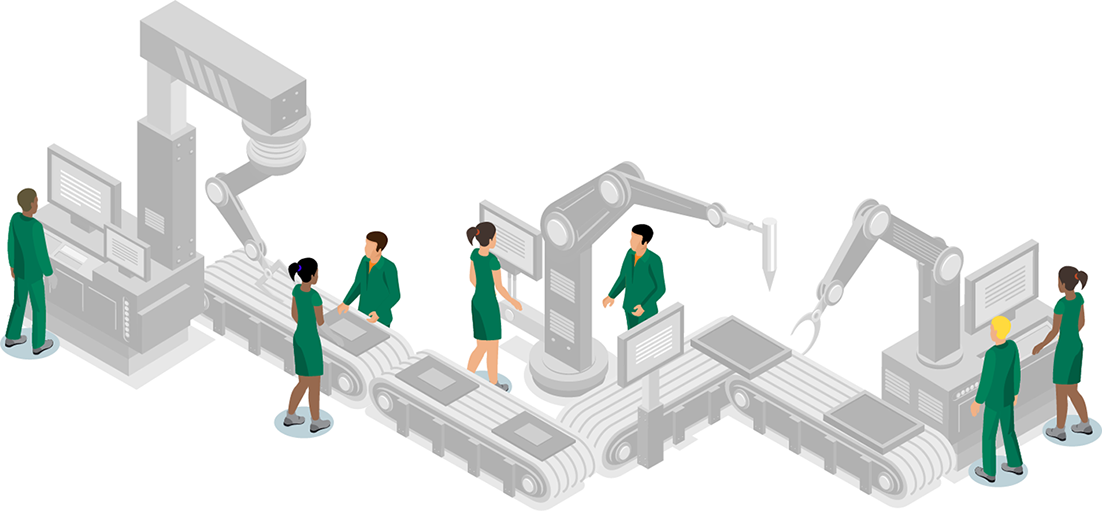
Module based training aimed at new unskilled employees to enable full operation of machinery & dissemination training.
Status qou
- Unskilled worker
Objective
Training to raise awareness and familiarisation of company specific processes, safety practices compliant with standards.
Training Methodology
- Company-specific training modules
- On-site training delivery for dissemination
Our competence ensures
- A didactic approach dedicated to the practical application of both learning and teaching.
- An intercultural method compatible with manual and digital media.
Industry specific
Automotive industry
(China, India, Mexico, USA, Poland, Germany)
The current state of play
The goal
The Way
Didactics
The External Link
References

The current state of play
More and more companies have to resort to employing unskilled employees in plants and on work sites worldwide. For this process to be effective, these workers have to be incorporated into the work force in a structured manner.

The goal
Our purpose is to provide unskilled employees with basic knowledge to:
• work in processes
• develop sensitivity to occupational safety
• familiarise themselves with the structural organisation of the company
• apply standards.

The Way
We have developed a concept that trains new employees to work safely and autonomously. The training begins in the workplace where the trainee is equipped with essential background knowledge - such as material properties in different temperature.

Didactics
With the potential to work across cultures, this training provides basic knowledge in the natural sciences and through its practical delivery ensures competency in core skills resulting in greater job satisfaction.
Greater job satisfaction is achieved through the complete understanding of process and outcome.
Method
• The training encompasses a variety of proven methods each corresponding to specific outcomes and all are motivational in nature.
• The methods embrace intercultural and culture specific knowledge and provides examples throughout within stipulated contexts.
• Through the medium of traditional learning pathways and digital interface, the training follows the customised needs of skills required, the more manual the skill, the more practical the exercises are based, thus developing the experience specific to the skill.

The External Link
The training is for both those with skills and those without. The essential criteria is whether the trainee has the practical hands-on experience often not provided in technical schools world-wide.
Here’s how: ‘On the job’ sponsored training continues to influence training yet takes on a new level of competence. It serves as a refined model of structured familiarisation which maintains standards and work practices through the added component of understanding sensitive issues relating to security and fossilised errors. For example, Health and Safety is implemented by practical understanding of specific practice yet trainees now have more autonomy over their learning and their quest for clarification in the training process. This means, new employees can ask without the stress of knowing their error may affect what they produce; learning comes before the manufacturing process. On the other hand, the training modules are also recommended for skilled workers who need greater familiarisation with processes, especially when the technical school attended had not focused on the practical side of the equation.

References (The Ligadur Pledge)
Ligadur has a wealth of experience in providing tailor-made training courses for the automotive sector (e.g. The Hirschvogel Group). Our training programs run worldwide including Germany itself.
The Ligadur concept is suitable to enhance the familiarisation of new employees with machinery and systems in various industrial areas.
Our induction program is particularly of interest for companies that need the rapid planning of training after choosing a location for the plant site.

